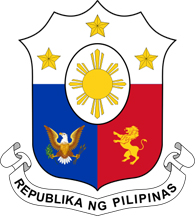- News Front Page
- Uncategorized
- Headline News
- Filipino Calgarian
- Business
- Pinoy News
- Community News
- Publisher's Note
- Kuya Bong's Kusina
- Views and Opinions
- Maikling Kwento
- Alberta News
- OFW – Month
- Travel News
- Health and Lifestyle
- Pinoy Toons
- Pinoy Spirit
- Entertainment
- The Philippine Lawyer
- Horoscope
- Greetings
- Editorial
- About Us
- Greetings From the Prime Minister
- Greetings from the President of the Philippines
- Greetings from the Premier of Alberta
- Greetings from the Mayor of Calgary
- Advertise With Us
- Disclaimer
- Subscription
Publisher's Note
- Publisher’s Note
Dear Kababayans, I hope you are all doing well this April and are keeping safe and healthy during this trying time. Last month we saw businesses closing down and workers getting laid off because of the economic shutdown that was created by the Coronavirus Pandemic. This puts a lot of stress on people as bills just [...]
Visitors to Pinoytimes
Page added on October 23, 2019
Benefits and Privileges of a Solo Parent in the Philippines

If you are one of the 20 million single parents (or caregivers) in the Philippines, then you are responsible for raising the 60 million kids that make up the next generation of Filipinos. Today’s parents have driven the global statistics of single parenting up to an all-time high, and it has become acceptable to take on such a role in this fast-paced world, even empowering in societies where individualism is increasingly becoming valued.
The Philippines—while conservatively a Catholic-influenced country—has taken small but sure steps to attaining social equity. Here are the main things you need to know about the benefits and privileges of a solo parent:
1. The government is required by law to support your status of parenthood.
Time credits a portion of this trend to the “decline of marriage,” as more than half of millennial mothers in the United States have documented births out of wedlock while some have chosen to stay unmarried despite motherhood. In the Philippines, solo parents are defined as individuals that bear the sole responsibility of raising a child. This can come about from numerous circumstances: rape or abuse; death or absence (due to detainment, separation, physical or mental incapacity, or abandonment) of a spouse; an unmarried father or mother that has chosen to raise the child alone; or, any family member that assumes the role of being the head of the family due to death or absence of the parent. That means, some grandparents or titos and titas may be covered by R.A. 8972, also known as the Solo Parents’ Welfare Act of 2000.
The act provides various benefits and privileges to solo parents that are intended to carry some of their economic burdens. In close coordination with the Department of Social Welfare and Development (DSWD) and the Department of Health (DOH), as well as other local government units and agencies, the government works towards covering many other needs ranging from medical to educational—and family advocates should keep their senators and congressmen vigilant about pushing for more benefits in the act as the years progress.
2. Solo parents below the poverty threshold are prioritized by the Act, but solo parents with higher salaries are still entitled to benefits and privileges.
Single parents that make less than the estimated P12,000 (or updated poverty threshold) are entitled to all the benefits and privileges of R.A. 8972. This includes services for emotional and mental health such as counseling; support in developing parenting skills and knowledge; and even crisis management and spiritual enhancement. Medical, educational, and financial help should also be provided by the respective government partner agencies.
As for benefits and privileges that even single parents above the poverty threshold can enjoy, these are the flexible working schedule (determined by both the employer and the solo parent regarding the arrival and departure of the solo parent at the work place); protection from work discrimination; and up to seven days of parental leave (on top of regular leave benefits) for solo parents that have been employed for at least one year.
3. The Solo Parent ID is crucial to receiving assistance, but voicing out and asking for help—especially for services that the government has not provided for—are still essential.
The truth is, many solo parents have not registered their status and do not even have the Solo Parent ID. Acquiring the Solo Parent ID is reportedly easy once you have secured the documents needed from the barangay and DSWD. However, other parents prefer to provide the birth certificate of their child or other documentation to prove their status as a single parent. On a case-to-case basis, employers and HR departments are encouraged to honor these documents to extend assistance to employees that are considered solo parents.
Admittedly, since a number of Filipino companies are still traditional and slow to update, it can be increasingly significant for solo parents to continue to raise their concerns and speak out about their interests. Most importantly, single parents should be reminded that they are, first and foremost, allowed to make themselves heard, in order for the state of single parenthood in the Philippines to become better.
RELATED STORIES
LATEST HEADLINES
- Foreign representatives now exempt from travel restrictions
- Alberta records two more deaths and 111 new cases of COVID-19
- Albertans can now access 20 million free, non-medical face masks to help prevent the spread of COVID-19
- House Committee of the Whole OKs bill giving ABS-CBN provisional franchise until October
- COVID-19 support for employers and employees
COMMUNITY NEWS
 UNDER A “NEW NORMAL,” PCG IN CALGARY RESUMES PASSPORT SERVICES
UNDER A “NEW NORMAL,” PCG IN CALGARY RESUMES PASSPORT SERVICES Canada turning to foreign airlines to bring home citizens stranded by pandemic
Canada turning to foreign airlines to bring home citizens stranded by pandemic Calgary shopping malls adopting safety measures ahead of Thursday’s planned reopening
Calgary shopping malls adopting safety measures ahead of Thursday’s planned reopening Announcement from The Philippine Consulate General in Calgary
Announcement from The Philippine Consulate General in CalgaryPINOY STORIES
 Over 22 million students now gearing up for school – DepEd
Over 22 million students now gearing up for school – DepEdHAVE YOUR SAY
Lorem ipsum dolor sit amet, consectetur adipiscing elit, dolor sit ipsum.PROMOTIONAL BLOCK
Lorem ipsum dolor sit amet, consectetur adipiscing elit, dolor sit ipsum.TRAVEL NEWS
PINOY TOONS
Tags
Archives













